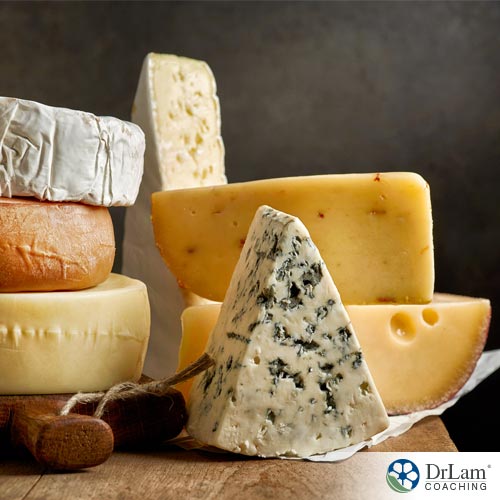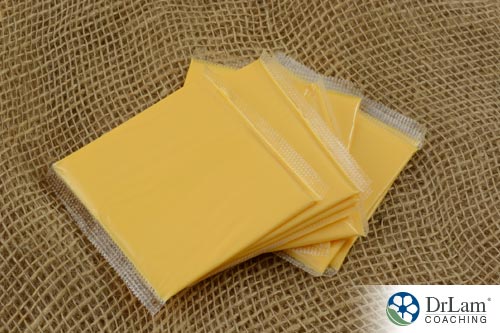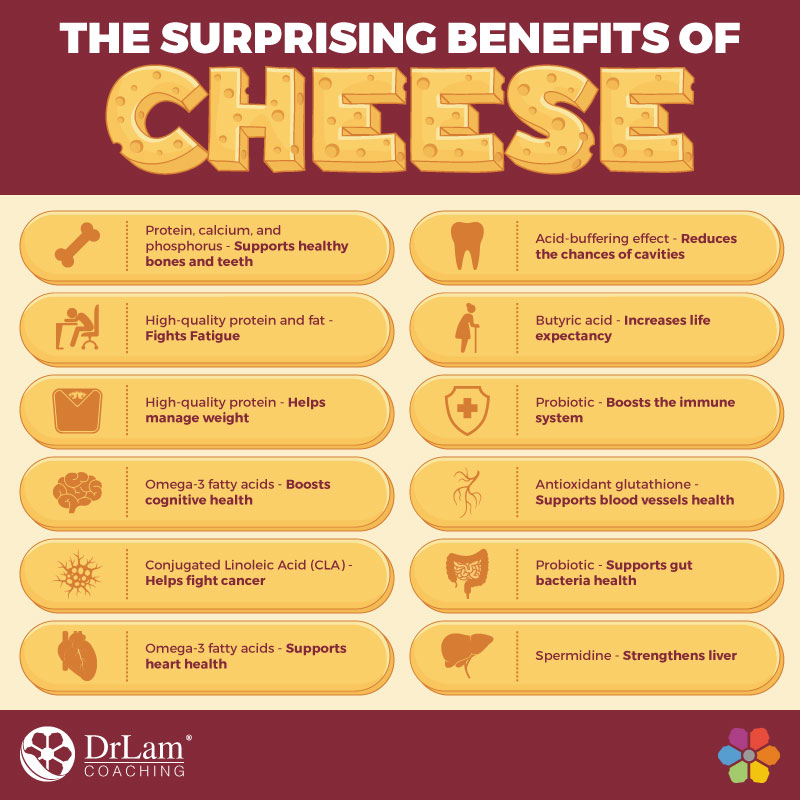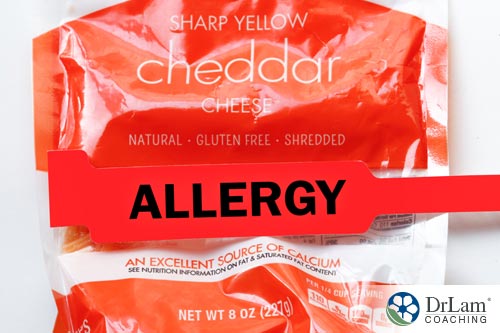 Say “Cheese!” Yes, we all love cheese. The word itself brings a smile to your face. Nothing can beat the delicious taste of warm melting cheese. However, most dieters reluctantly give up this favorite food due to its high-calorie content. But there is good news for cheese lovers out there. The nutritional benefits of cheese make it a healthy food when consumed in small portions. Though this appetizing food is often vilified for its high level of saturated fat, recent research reveals that cheese may not negatively impact health as much as people assume.
Say “Cheese!” Yes, we all love cheese. The word itself brings a smile to your face. Nothing can beat the delicious taste of warm melting cheese. However, most dieters reluctantly give up this favorite food due to its high-calorie content. But there is good news for cheese lovers out there. The nutritional benefits of cheese make it a healthy food when consumed in small portions. Though this appetizing food is often vilified for its high level of saturated fat, recent research reveals that cheese may not negatively impact health as much as people assume.
Studies suggest that cheese, being a nutrient dense food, does not negatively affect blood cholesterol, despite being high in saturated fat. Further, research has demonstrated that consuming cheese can potentially help with prevention of cancer, cardiovascular disease, and type-2 diabetes. As cheese contains a high amount of fat and calories, however, health experts recommend using it as a flavor enhancer rather than the center of a meal.
Throughout history, cheese has been a significant part of the human diet. This delicious and highly nutritious food has been used both as a dietary staple and gourmet food. Cheese is produced from milk and comes in various shapes, flavors, and textures.
Cheese is mainly composed of protein and fat, the proportion of which largely depends on the type of cheese you are using. Hard cheeses, like cheddar, contain more calories than soft cheeses, like mozzarella. Despite being higher in calories, hard cheddar cheese can be healthy for teeth. Eating hard cheese can generate more saliva, which helps to keep your mouth less acidic and reduces chances of cavity formation.
When it comes to fat content, certain cheeses are lighter and contain less fat than others. High-fat cheeses have more calories. Low-fat cottage cheese has the least fat content with 1 gram per ounce.
Let us look into the approximate calorie and fat content of various cheeses.
| Type Of Cheese | Calories Per Ounce | Fat Per Ounce | Protein Per Ounce |
|---|---|---|---|
| Whole-milk ricotta | 50 | 3.75g | 3.20g |
| Feta | 75 | 6.1g | 4.2g |
| Whole-milk mozzarella | 85 | 6.2g | 6.30g |
| Swiss cheese | 106 | 7.78g | 7.54g |
| Cheddar | 113 | 9.28g | 6.97g |
Consider including various types of cheese in the diet to gain the nutritional benefits of cheese.
 Fresh Cheese - These have a soft texture with a higher moisture content than other types of cheeses. Fresh cheese is not aged and thus has a milder taste. Ricotta, mascarpone, and cottage cheese come under this category.
Fresh Cheese - These have a soft texture with a higher moisture content than other types of cheeses. Fresh cheese is not aged and thus has a milder taste. Ricotta, mascarpone, and cottage cheese come under this category.
Mature Cheese - Unlike fresh cheese, mature or aged cheeses are left to sit for six months or longer giving them a firmer texture and sharper flavor. Parmesan, cheddar, and swiss are this type of cheese.
Whole-Milk Cheese - Prepared from whole milk, this cheese contains over 6g – 10g of fat per ounce, in which 4g – 6g is saturated fat.
Low-Fat Cheese - As the name itself suggests, these cheeses are low in fat content and are made from skim milk.
Processed Cheese - American cheese, flavored cheese, and cheese spread make this list. They contain added sodium, emulsifier, and flavor enhancers.
Non-dairy Cheeses - Soy cheese is an example of non-dairy cheese. These are highly processed. This type of cheese is especially suitable for those with lactose intolerance.
Good nutrition is essential to keep you fit and going. Busy schedules can often leave you feeling stressed and tired. If you frequently experience stress along with symptoms of brain fog, insomnia, low energy levels, anxiety, difficulty in waking up, insomnia, stubborn weight gain, drop in concentration levels, or cravings for salty and fatty food then you might have Adrenal Fatigue Syndrome (AFS).
Your body’s NeuroEndoMetabolic (NEM) Stress Response is a defense system against stress. When under stress, the NEM stress response sends signals to your adrenals for secreting the anti-stress hormone cortisol. Eating a nutritious diet and regular meals are vital for the healthy functioning of your adrenals as well as maintaining stable blood sugar levels.
The nutritional benefits of cheese can help boost your adrenal health. Cheese contains high-quality proteins which can give you a feeling of fullness and help reduce weight. Eating cheese in moderation can help you reap these benefits.
Cheese is also a great source of calcium. It also contains vitamin A, D, E, K, B12, phosphorus, zinc, iron, riboflavin, and conjugated linoleic acid. Several studies have highlighted these nutritional benefits of cheese.
Here is why you should consider eating a moderate amount of cheese in your diet:
 Cheeses are rich sources of high-quality protein, calcium, and phosphorus which can help support healthy bones and teeth. Calcium helps in wound healing, blood clotting, and maintaining healthy blood pressure levels. Including cheese in your diet can help cut down the risk of osteoporosis, especially in elderly women. Cheese is also rich in casein protein and essential amino acids, which can help lower blood pressure and increase the absorption of minerals from the digestive tract.
Cheeses are rich sources of high-quality protein, calcium, and phosphorus which can help support healthy bones and teeth. Calcium helps in wound healing, blood clotting, and maintaining healthy blood pressure levels. Including cheese in your diet can help cut down the risk of osteoporosis, especially in elderly women. Cheese is also rich in casein protein and essential amino acids, which can help lower blood pressure and increase the absorption of minerals from the digestive tract.
Food plays a vital role in dealing with fatigue. People with AFS have low energy levels. Nutrient-dense foods like cheese are rich in high-quality protein and fat which provides your body with a great source of energy without causing any spikes in the blood sugar level.

While trying to lose weight, the common belief is that you should avoid dairy products because they are high in fat. But research shows that including milk and dairy products such as cheese in your diet actually promotes greater abdominal fat loss. This can be especially helpful for people with AFS having stubborn belly fat. The presence of high-quality proteins in cheese induce a feeling of fullness, helping you eat less overall. Consider having cottage cheese as it is low in fat and high in protein. Studies suggest that those who ate cheese regularly gained less weight than those who never had cheese. However, another study showed that people who consumed more cheese tended to be overweight. This demonstrates that eating cheese in small portions is key to helping in weight management, but overdoing it can have negative consequences.
Eating cheese encourages saliva secretion and makes your mouth less acidic, thus reducing the chances of cavities. A study was conducted on people to observe the acid-buffering effect of cheese. During the study, people were asked to eat cheese after rinsing their mouth with a sugar solution. The results showed that their mouths had a rapid decrease in acidity levels, thus lowering the risk of cavities.
Cheese contains conjugated linoleic acid (CLA) which can help fight obesity, cancer, and cardiovascular disease. Studies have linked cheese with a reduced risk of developing colorectal cancer.
 Dairy foods including cheese make a vital part of the anti-hypertension DASH diet. Research has liked cheese with a healthy heart. When taken in small portions, cheese can lower the risk of developing cardiovascular disease.
Dairy foods including cheese make a vital part of the anti-hypertension DASH diet. Research has liked cheese with a healthy heart. When taken in small portions, cheese can lower the risk of developing cardiovascular disease.
Studies suggest that the presence of the compound spermidine in cheese helps boost liver health and reduces chances of hepatocellular carcinoma and liver fibrosis, the most common types of liver cancer.
Research suggests that probiotic cheese can help strengthen the immune system. Including probiotic cheese in your diet can help boost your immune response, which is especially helpful for the elderly.
Studies have related cheese consumption with a healthy life and increased life expectancy. Research shows that people with cheese or milk in their diet had an increased life expectancy and reduced risk of coronary heart disease compared to those who did not consume cheese. Scientists also suggest that cheese contains high levels of a compound known as butyric acid which can help to reduce obesity, stoke metabolism, and support the health of gut microbes.
Research suggests that cheese can help boost cognitive health. Scientific studies demonstrate that people who consumed dairy products including milk, yogurt, and cheese on a regular basis scored better in the cognitive test than those who did not consume dairy.
Studies show that dairy products including cheese are rich in the antioxidant glutathione which plays a vital role in brain health and reduces the risk of age-related neurodegeneration. Another study suggests that cheese helps to combat the negative effects of sodium. People who consumed dairy cheese had better-functioning blood vessels than those who consumed soy cheese or pretzels.
Cow cheese contains omega-3 fatty acids which promote brain and cardiovascular health. Milk from cows that feed on alpine grasses is known to have a high content of these helpful fatty acids.
Being fermented food, cheese helps support the healthy growth of gut bacteria which, in turn, produces a positive effect on the blood cholesterol levels.
Eating cheese can help boost the immune system, maintain healthy body function, increase blood formation, enhance nutrient absorption, and protect against several diseases.
Enjoy the nutritional benefits of cheese by pairing it with other organic whole foods.
Despite its high-calorie content, a small amount of cheese can always fit into your daily diet. However, slathering cheese on crackers, nachos, deep-fried items, and unhealthy foods cancels out its nutritional benefits and instead raises your calorie intake which can be harmful.
There are several ways to enjoy the nutritional benefits of cheese. Consider adding a small amount of this delicious food to your soups, salads, sauce, curries, grilled vegetables, and baked recipes for an enhanced flavor and texture.
Cheeses are high in calories, so it is always best to eat them in small portions and as flavor enhancers to enjoy the health benefits. Crumbling high-fat blue cheese over salads and sauce, for example, allows you to enjoy the health benefits without adding too many more calories. Sprinkle feta on salads or consider adding grated parmesan to your soups for an enhanced flavor and texture. Cottage cheese has the lowest fat content, making it an especially good choice for those prone to obesity and cardiovascular disease. Cottage cheese curry can make a delicious and healthy main course recipe.
Processed cheese foods can contain additional sodium, chemicals, and trans fats, making them unhealthy. Instead, consider buying cheese prepared from organic milk, free from growth hormones and antibiotics, or make your own cheese spreads and dips, to gain full access to the nutritional benefits of cheese.
A diet high in saturated fat and sodium raises the risk of type-2 diabetes, high blood pressure, obesity, and cardiovascular diseases. The recommendation is for fat intake to be limited to 20 – 35 percent of your daily calories, and saturated fat needs to be less than ten percent of your total calories.
Cheeses are high in fat, sodium, and calories. Therefore it is important to consume them in smaller portions to gain the nutritional benefits of cheese without increasing your sodium and fat intake too much. However, research suggests that saturated fat from dairy products can be less harmful than that from some meats.
In general, saturated fat can raise LDL cholesterol, or bad cholesterol. However, some research suggests that full-fat cheese may not negatively affect LDL cholesterol. Scientists are unclear why this happens and believe that it may be due to other components in cheese like calcium that change the way fat is absorbed by the body.
Cheeses are also high in sodium. An ounce of feta and parmesan can contain up to 260 mg and 390 mg of sodium respectively. Cutting down portions also helps in keeping your sodium intake in check. Feel free to enjoy cheese, while taking care not to overindulge. Those who are lactose intolerant can consider having aged cheeses such as Swiss and cheddar as they contain little or no lactose.
Make sure you stay away from processed and flavored cheese as they contain additional sodium, fat, compounds, and synthetic flavors. There also are concerns about the rise in cases of estrogen and steroid hormones in various dairy products which can disrupt your endocrine system and cause cancer. Therefore, consider including organic products in your diet to avoid any potential health risk.
 Despite the high nutritional benefits of cheese, many people can be sensitive to dairy products. Allergy to milk protein whether whey or casein can cause negative reactions and trigger inflammation in the body. People who have milk allergies need to avoid dairy products including cheese.
Despite the high nutritional benefits of cheese, many people can be sensitive to dairy products. Allergy to milk protein whether whey or casein can cause negative reactions and trigger inflammation in the body. People who have milk allergies need to avoid dairy products including cheese.
People with lactose intolerance also need to avoid dairy products as consuming them may cause diarrhea, flatulence, discomfort, and bloating. In AFS, people often have a craving for fatty and salty foods. Including a small portion of cheese is a healthy way to satisfy the craving. However, in cases of dairy sensitivity, cheese needs to be avoided as it can lead to triggers further worsening AFS symptoms.
The tolerance level differs from person to person. While some may be tolerant of aged dairy products with low lactose levels, such as hard cheese and yogurt, others might show sensitivity even to a small quantity of dairy. In people with lactose intolerance, soft cheeses such as mozzarella may cause triggers. However, they may be able to tolerate a small amount of hard cheese, such as parmesan or cheddar, as these cheeses have a lower lactose content. People with lactose intolerance may safely consume such cheeses in small amounts. Digestive enzyme supplements may also be an option for those with lactose intolerance.
Cheese is a delicious nutrient-rich dairy product. Despite being high in calories and saturated fat, the high nutritional benefits of cheese make it a healthy addition to your diet. Studies have linked consuming cheese with a decrease in risk of cardiovascular diseases, cancer, and type-2 diabetes. Cheeses are a great source of high-quality protein and calcium. They also contain vitamin A, D, E, K, B12, phosphorus, zinc, iron, riboflavin, and conjugated linoleic acid. Including a small portion of cheese in your daily diet can help fight fatigue, obesity, and cavities. It also helps promote healthy bones, teeth, and gut, strengthen the liver and blood vessels, boost the immune system, improve cognitive health, and increase life expectancy.
Packed with nutrition, cheese can help curb salty and fatty food cravings, reduce stubborn fat, help nourish adrenals, and restore energy levels in adrenal fatigue. However, people with dairy sensitivity or lactose intolerance should avoid dairy products, including most cheeses, as they can trigger inflammation and worsen AFS symptoms.
Cheese is a nutritious dairy product with high fat and calorie content. Hence it needs to be consumed in small portions to safely gain the nutritional benefits of cheese. All dairy products should be avoided in case of dairy allergy.
